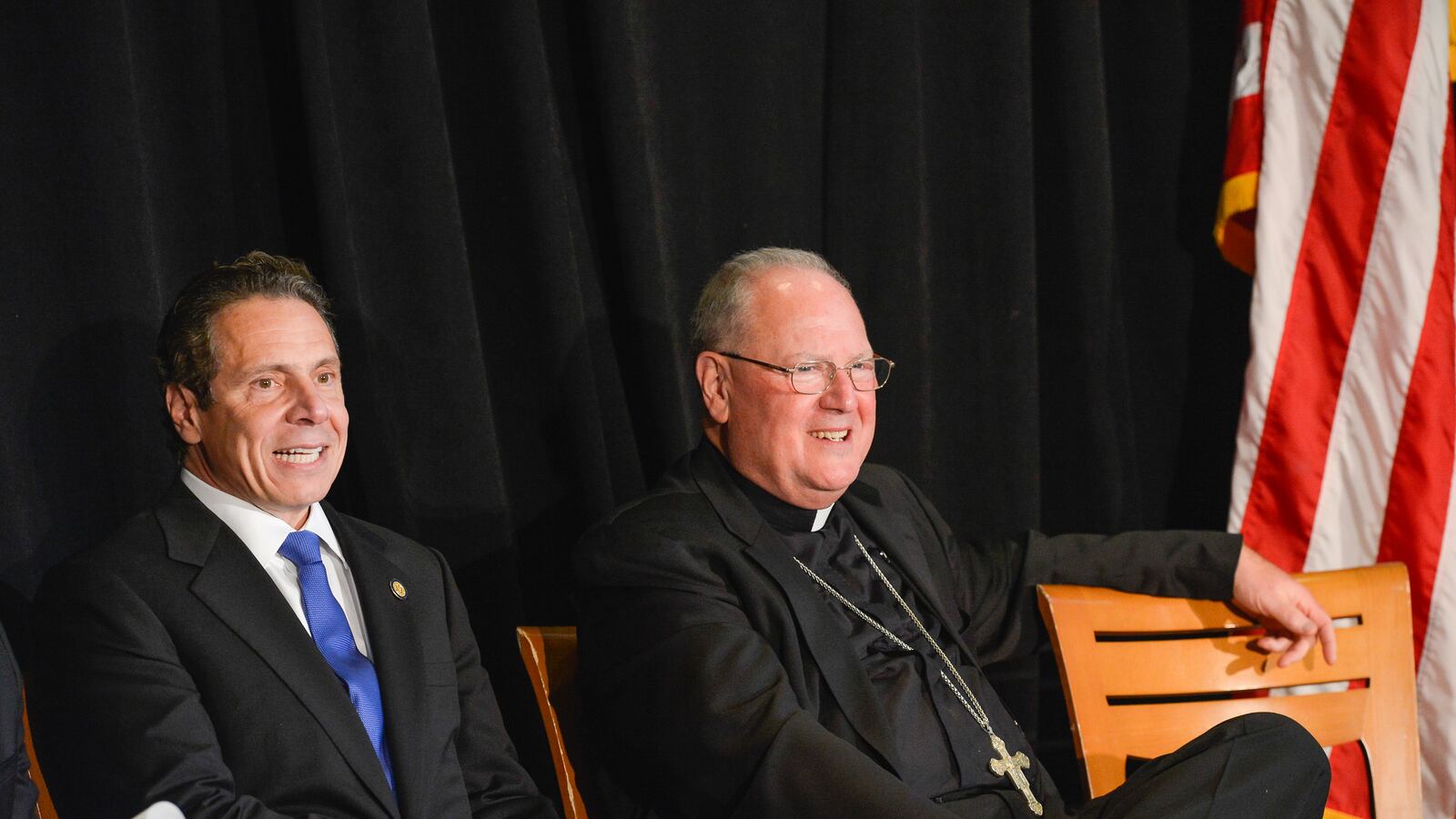Gov. Andrew Cuomo’s latest proposal to expand school choice extends beyond charter schools to private and parochial schools, options that could alter the city’s complex student enrollment patterns.
Cuomo spent Tuesday with Cardinal Timothy Dolan advocating for tax credits that would finance full or partial tuition to nonpublic schools for students from less-affluent families.The proposal, a version of which was cut out of an education deal decided along with the state budget in April, is the latest effort by Cuomo to promote schools that aren’t within the traditional school system and has a better chance than ever of making it into law.
Teachers unions and many lawmakers oppose the plan, which they see a way to direct taxpayer dollars away from public schools. The Democrat-controlled Assembly has blocked the bill from coming up for a vote in both of the last two years.
But shifting political dynamics mean that the proposal could have a better chance of passing this year. Among the Assembly Democrats who supported the last version of the legislation is new Speaker Carl Heastie, who took the leadership post in January after Sheldon Silver stepped down amid a corruption scandal. Cuomo’s support indicates that the plan will be part of negotiations over extending mayoral control of New York City schools and raising the state’s charter school cap during the legislative session’s final months.
In New York City, 242,000 students attended nonpublic schools, 19 percent of the student population, according to the Independent Budget Office. But enrollment in Catholic schools has been trending downward for years.
“This would be something that would significantly help many of those schools and many of those schools are in my district,” said Queens Democrat David Weprin, a Democrat who sponsored the bill with Heastie.
The bill, which has not yet formally been introduced, would establish tax credits that would finance four statewide education programs. Individuals or corporations who donate to the programs would be able to subtract up to 75 percent of their contribution from what they owe the state in taxes. Up to $150 million in tax credits would be available in the first year.
Two of the programs would offer tax credits for donations that directly benefit public schools. Up to $37 million would go to public schools to fund a wide range of activities like after-school classes and arts enrichment. Another $10 million would be set aside for district and charter school teachers to be reimbursed up to $200 each for classroom supplies they buy on their own.
But most of the available money — $137 million — would go toward the other two programs, one of which would offer scholarships for “low-income and other students,” and the other offering $500 tuition checks for children from families earning less than $60,000. That, Cuomo and Dolan said, would help revitalize the state’s religious schools.
If the payments did lure parents who otherwise would have opted for district or charter schools, it could mean an even more complicated admissions landscape in certain low-income neighborhoods where charter and district schools already compete for students. (The number of eligible city students will depend on the volume of donations and individual tuition bills.)
The deep-pocketed supporters of the city’s Roman Catholic archdiocese have poured millions into a three-year campaign for such legislation betting that it will make a difference, though. The diocese has had to close dozens of Catholic schools over the last decade, as city figures show they lost more than one-third of their total enrollment.
Enrollment in other types of private schools, especially Jewish schools, have increased, according to the IBO. And enrollment at city charter schools has exploded over that period, increasing from 2,422 students in 2003 to 83,000 this year.
That has led some to question the motives behind Cuomo’s advocacy and to ask why struggling Catholic schools should be propped up with public dollars.
“Why is the state promoting enrollment in religious schools?” said Laura Zingmond, who works for the school review website Insideschools, an arm of The New School’s Center for New York City Affairs, and a member of the city’s Panel for Educational Policy. “It should be neutral on this.”
United Federation of Teachers President Michael Mulgrew called the proposal “a set of tax credit schemes” that would disproportionately benefit wealthy donors. Mulgrew, de Blasio, and Chancellor Carmen Fariña have also said the state’s charter cap, which Cuomo wants to raise, should stay put.
On Monday, Cuomo reflected on his own experience attending Catholic schools in Queens and said the legislation was meant to allow parents to choose among the widest possible array of schools for their children.
“I am a product of parochial school education – that was my parents’ choice,” Cuomo said. “I made a different choice with my three girls. We sent them to public elementary school in Westchester. It was a good public school, it was a good district, and that was the choice that I made.”
“So there is no right or wrong choice,” he said.

